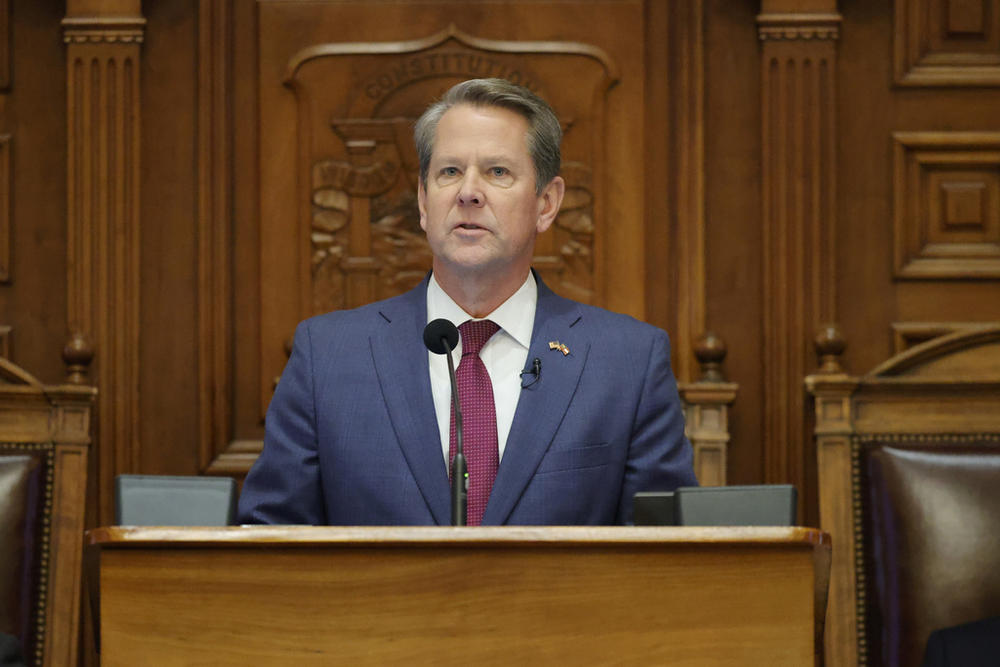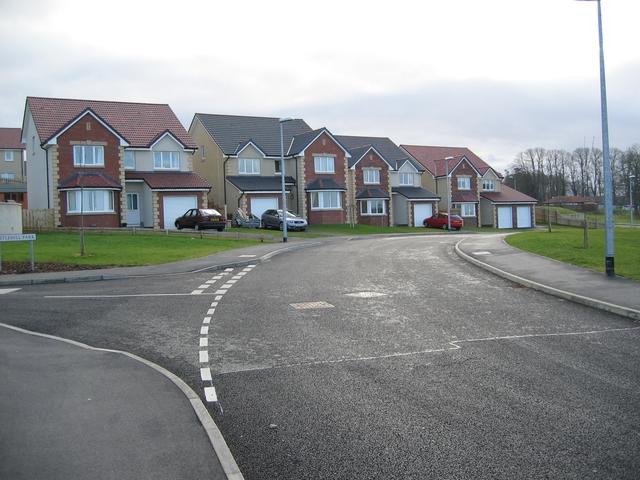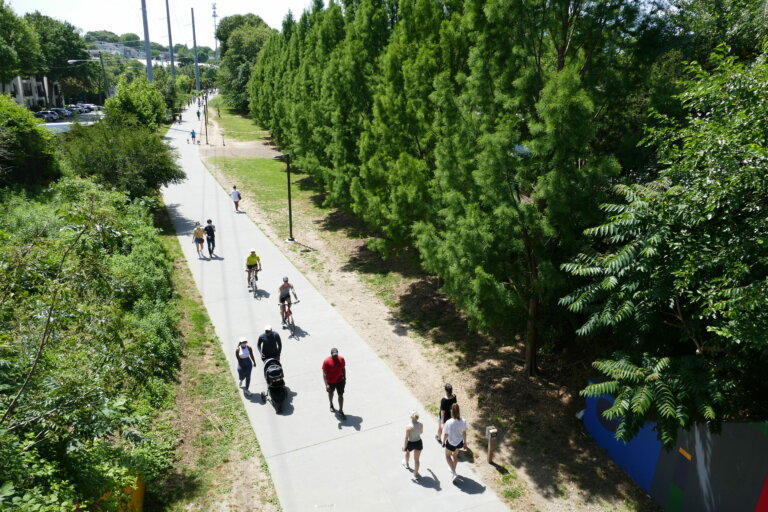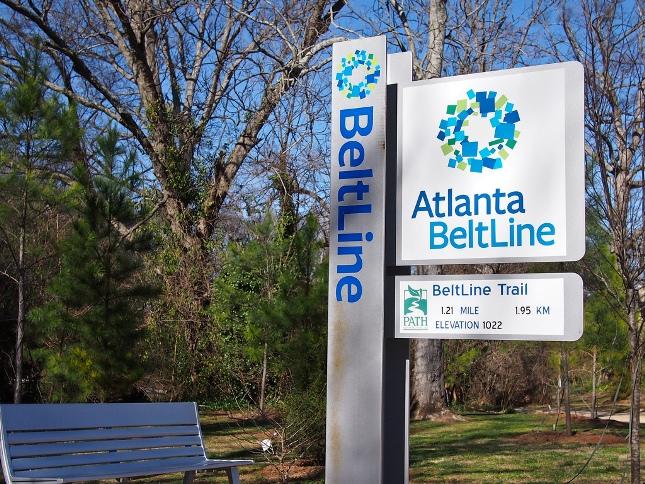
Section Branding
Header Content
Georgia Today: Exonerated man killed by Sheriff's deputy; State surplus debate; Atlanta Beltline CEO
Primary Content
A Black man recently exonerated after serving 16 years is prison has been killed by a sheriff's deputy in Camden County; a massive state surplus fuels debate over spending priorities; and a talk with the CEO of the Atlanta BeltLine about transit, affordable housing, and the path's future.

Peter Biello: Welcome to the Georgia Today podcast from GPB News. Today is Tuesday, Oct. 17. I'm Peter Biello. On today's episode, a Black man recently exonerated after serving 16 years in prison has been killed by a sheriff's deputy in Camden County. A massive state surplus fuels debate over spending priorities. And I'll talk with the CEO of the Atlanta Beltline about transit, affordable housing and the paths future. These stories and more are coming up on this edition of Georgia Today.
Story 1:
Peter Biello: A sheriff's deputy in Southeast Georgia's Camden County has shot and killed a Black man from metro Atlanta who was released after being wrongfully sentenced in Florida to 16 years in prison. GPB's Benjamin Payne reports, the fatal shooting occurred during a traffic stop yesterday.
Benjamin Payne: Authorities say 53-year-old Leonard Cure died after being tased, hit with a baton and shot by a Camden County sheriff's deputy on Interstate 95 near Kingsland. The Georgia Bureau of Investigation is looking into the shooting and says Cure became noncompliant with the deputy after being placed under arrest. The GBI didn't say why Cure was arrested nor give the deputy's name. Cure was convicted in 2003 of armed robbery outside Fort Lauderdale, Fla., and spent 16 years in prison before being exonerated with the help of the Innocence Project of Florida. Seth Miller is the group's director.
Seth Miller: I know from talking to many clients, their biggest fear is that on the other side of that door or at a traffic stop, they're going to be sent right back to where they were when they worked so hard to get out of for something they didn't do.
Benjamin Payne: Miller says Cure, who received a cash settlement in August from the state of Florida, had recently closed on a house in Palmetto, southwest of Atlanta. For GPB News, I'm Benjamin Payne.

Story 2:
Peter Biello: Georgia's budget surplus is now approaching $11 billion. The State Accounting Office said yesterday that Georgia ran a $5 billion surplus in the fiscal year that ended in June, adding to an already swollen amount of cash on hand. The surplus is expected to fuel debate over budget priorities, as Gov. Brian Kemp and state lawmakers head into the General Assembly that begins in January.
Story 3:
Peter Biello: State and federal law enforcement officials are looking for four men who escaped from the Bibb County Detention Center in Macon early yesterday morning. GPB's Grant Blankenship has more.
Grant Blankenship: The four men, including one who could face life in the federal prison system on a drug-related conviction and another facing a murder charge, slipped through a broken window and two fences at 3 a.m. before escaping in a waiting car. Boone County Sheriff David Davis says jail guards begin realizing what happened three hours later. Davis says the escape was due to a combination of chronically inadequate jail staffing and overcrowding, due in part to backlogged prosecutions.
David Davis: But the main thing is you've got an old facility, you're just moving stuff around to make the best of a bad situation. We have a 40-something-year-old facility that's really just crumbling.
Grant Blankenship: That, he says, means parts of the Bibb County Jail are easy to escape. Davis says an internal investigation is underway even during the manhunt. For GPB News, I'm Grant Blankenship in Macon.

Story 4:
Peter Biello: Georgia has opened the waitlist for its housing choice voucher program for the first time in two years. The State Department of Community Affairs says it will accept applications for the program, formerly called Section 8, today through Friday. The federally funded vouchers offer low-income renters direct support for affordable housing. Bambie Hayes Brown of the housing advocacy group Georgia Advancing Communities Together says demand for affordable housing in Georgia far exceeds supply.
Bambie Hayes Brown: Because the need is tremendous, rents are rising way more significantly than wages. More and more families are needing help. But unless the funding is there, then the amount and number of families that can be assisted are limited.
Peter Biello: Applicants typically wait two-and-a-half years for a voucher. That's according to the National Center on Budget and Policy Priorities. The state is accepting applications from residents in 149 counties with larger counties running their own programs.
Story 5:
Peter Biello: Residents of St Philip's Cathedral Towers in Atlanta are pushing back against a plan to have a new property management company take over the Buckhead building. GPB's Amanda Andrews has more from the rally this morning.
Amanda Andrews: National Church Residences could soon be managing senior housing at the cathedral. The residents' association has filed a petition against the agreement, citing reports of dangerous conditions at other NCR managed properties. Cathedral Towers resident Michelle Worsham spoke at the rally about living at a previous property under NCR management.
Michelle Worsham: The music went on to 4:00 in the morning. The prostitutes came in. They were leaving doors open. I complained. I even complained to the security guard. And the last time I complained, he hung up on me.
Amanda Andrews: The association is asking St Philip's Cathedral to rescind the contract with NCR. Meanwhile, the church says it will move forward with the deal. For GPB News, I'm Amanda Andrews.
Story 6:
Peter Biello: The U.S. Fish and Wildlife Service says three endangered species once found in Georgia are now extinct. The agency removed 21 species yesterday from the Endangered Species Act because of extinction. The southern acorn shell mussel and the upland conch shell mussel were both last seen in Northwest Georgia's Conasauga River in 1973 and 1986, respectively. The Bachman's warbler was a small yellow and black songbird that once bred in southeastern swamps. It was last seen in its wintering ground of Cuba in 1962.

Story 7:
Peter Biello: One of the nation's largest agriculture trade and education conferences kicked off today in South Georgia's Moultrie. The three-day Sunbelt AG Expo draws tens of thousands of visitors from across the Southeast. They come to see more than 1,100 exhibitors showcasing the latest in farm technology. The expo also will name a farmer of the year and winners in various livestock competitions.
Story 8:
Peter Biello: A Pennsylvania-based logistics company, is hiring more than 1,500 workers at its fulfillment center south of Atlanta. Radial opened its warehouse in Locust Grove three years ago. Its hiring announcement today comes as companies prepare for a holiday rush of orders and deliveries.
Story 9:
Peter Biello: A dozen historic theaters across the state will share a half million dollars in grants for historic preservation from the Fox Theater Institute. The Atlanta-based organization announced the awards yesterday. Among other grants, Augusta's Imperial Theater will receive funds to purchase and install a new sound system. And the Waycross Area Community Theater and Springer Opera House in Columbus will receive emergency funds for critical repairs. It's the 15th year that the Fox Theater Institute has supported Georgia theaters' economic lifelines in their communities through annual grants.
Story 10:
Peter Biello: The Atlanta BeltLine is a 22-mile loop around the city ideal for walkers and bicyclists. In its most developed sections, it's a paved path along which you'll find shops, breweries, restaurants, public art and gathering spots. Some of it is shut down for construction now as the BeltLine's leaders push toward a 2030 completion date. Will it be ready by then? And how will it impact transit and housing in the city? I spoke with Clyde Higgs, Atlanta BeltLine's CEO, at Eventide Brewing last week in front of a live audience.

Peter Biello: Here to talk to me about all things BeltLine is the CEO of the Atlanta BeltLine, Clyde Higgs. Clyde, welcome.
Clyde Higgs: Thank you. Thank you for having me.
Peter Biello: And as we were preparing for this live broadcast, you just slid in here in time because traffic is what it is in Atlanta. So I think transit might be a good thing for us to talk about, yes?
Clyde Higgs: Absolutely. And granted, I live in Buckhead, but it literally took me almost an hour to get here.
Peter Biello: Nobody from Atlanta is surprised to hear that.
Clyde Higgs: No, not at all. Not at all. That is not uncommon at all. That's why we need options to get people around the city. And I think the BeltLine is the perfect place for that.
Peter Biello: Well, tell me a little bit about that, because in some ways it's a recreation path, right? Sure. You know, you can bike on there for fun. You can walk on it, take a stroll with your dog. But it's a good way to get to point — from point A to point B for practical purposes. Can you tell a little bit about plans for that?
Clyde Higgs: Absolutely. So when you think about the BeltLine, people enjoy it in many different ways, right? It is a place for people to get to point A to point B. People go to the BeltLine to — to walk their dogs or hang out with family to go to restaurants. But also it is a place for — for people to get around the city without getting in a personal vehicle. So if you believe the numbers from the Atlanta Regional Commission — and I happen to believe those — that we're going to add another 3 million people to metro Atlanta in the next 25 to 26 years or so, we need the BeltLine to be that place that allows people to get around and enjoy amenities that add to their quality of life without having to get in a personal vehicle.
Peter Biello: So you're thinking of the BeltLine as a way to for people to get to work on bike, perhaps?
Clyde Higgs: Absolutely. Bike, your two feet, and ultimately future transit as well.
Peter Biello: So does that also include plans for off-the-BeltLine spurs so that there's like safe biking lanes for people who once they exit the BeltLine and head off into maybe midtown or downtown?
Clyde Higgs: Absolutely. So if you think about the BeltLine, it is — and it will be a completed 22-mile loop around the city — but it's going to be an additional 11 miles of spurs that go directly into neighborhoods. And so people don't realize this, but one of our responsibilities for the BeltLine is to do additional complete streets around the city of Atlanta. So that's one of the things we're excited about. You probably see the work on Ponce right now, and that's one of our complete street projects that's going on.

Peter Biello: There's also plans for a — some light rail along the BeltLine, and people have kind of strong feelings about this. It's not going to be on every mile of the BeltLine, as far as I understand it. But can you tell us a little bit about where light rail is planned and what it might look like?
Clyde Higgs: Absolutely. So think about the BeltLine: So these are really honestly the golden years for — for BeltLine. We are super excited. So think about over the last three years of the project, we have been super focused on affordable housing. But if you don't remember anything that I say, we will finish the BeltLine Trail by 2030. That is absolutely a guarantee. We've had three groundbreakings this this calendar year. We'll have a ribbon-cutting for the Northeast Trail this year as well. But yes, rail on the BeltLine is coming. We're working and supporting MARTA in the city of Atlanta. So that's one of the things we're really excited about.
Peter Biello: The people who love the rail really love it. They say it's sort of an equity thing. You're going to be able to help more people get to where they need to go without having to own a car, which is a great thing if you're — if you're not in the position where you can maintain a car. The people who are really against it, though, are the people who picture this beautiful biking, pedestrian trail, lots of animals, lots of people around, and then this: a giant subway car essentially next to the BeltLine. Is that a is that does that ruin the esthetics? Does that create hazards for people?
Clyde Higgs: That's a — that's a great point. And that's one of the things that we are in the throes with right now, making sure that people can imagine what future transit means. And so, yeah, let's be honest, 95% of the population are not transit experts. But there are ways to really design transit where it is beautiful is esthetically pleasing. It still is green. You can use grass tracks, you can use trees and bushes as dividers. There's a lot of things that you can do to make it feel still green and verdant, the way people experience the BeltLine today. So so that's what we mean by — by BeltLine transit. This is not the low cost denominator, but what we're doing is really making investments for not only us but but our great grandkids and what they are going to, to use the BeltLine as and we have to think about the entire population of the city. So that means senior citizens, that means people who, let's be honest, not everyone's going to walk 10 miles from from Southwest to to Lindbergh, and that's just not the reality. So how do we give people beautiful, esthetically pleasing options to get around the city?
Peter Biello: The BeltLine — you said the BeltLine has been focused on affordable housing. So let's talk a little bit about that. I mean, it has a tendency to increase property value alongside at the BeltLine. Think of the old Fourth Ward, you know, and Inman Park, those ZIP codes are pretty expensive. To help those who may have seen giant increases in property taxes, you have the Legacy Resident Retention Fund, helps pay people's property taxes. Is this a sustainable way to make sure that people who have lived here in these neighborhoods for so long are able to stay?
Clyde Higgs: Yeah. And so as we think about in 2021, that was probably one of the most pivotal years for — for BeltLine ever. And that was the passage of the special service district, which ultimately helped us to raise about $100 million from property owners around the BeltLine. So that created a just cascade of funding opportunities: $100 million from the SSD, $80 million from the Woodruff Foundation, $30 million from Cox, a number of funding opportunities from the federal government. And then also the tax allocation district for the BeltLine continues to grow. So we have cobbled together about $350 million over the last, let's say, three years. So we're in a very strong position with regards to finishing the BeltLine Trail, but also making sure that we are focused — hyperfocused on housing affordability. So I'll give you one quick stat.
Peter Biello: Sure.
Clyde Higgs: Last year we actually exceeded our affordable housing goal by 30% and that was because of the SSD.
Peter Biello: So the — the overall goal is 5,600 units preserved or created by 2030.
Clyde Higgs: That's correct.
Peter Biello: That goal you're talking about exceeding is an annual goal on track for that 5,600?
Clyde Higgs: Absolutely. And we expect to exceed — so, you know, headlines, we think we are going to actually exceed 5,600 units by the end of 2030.
Peter Biello: Yeah. And should you aim to exceed it or just great that it's exceeded because you based that on I guess it was when the BeltLine started —
Clyde Higgs: That's correct.
Peter Biello: — a certain amount of multifamily use anticipated for Atlanta plus income for the BeltLine. Is 5,600 really a lowball number at this point for how much you should be expecting that build a preserve?
Clyde Higgs: So luckily, we have a an affordable housing mayor and so we've got to think about this even beyond the Atlanta BeltLine. But this is a city of Atlanta, perhaps even a metro Atlanta challenge. So if you think about all the cities, growing cities across the Southeast. Think about Charlotte, think about Nashville, all of these cities are witnessing just this in-migration back into the center cities. And that's what we're feeling in Atlanta. So this is a citywide challenge that we need to tackle.
Peter Biello: Well, Clyde Higgs, CEO of the Atlanta BeltLine, thank you so much for coming in and speaking about your work. Really do appreciate it.
Clyde Higgs: Thanks for having us.
Peter Biello: And that's it for this edition of Georgia Today. Thank you so much for tuning in. If you want to learn more about any of these stories, visit GPB.org/news. And don't forget to subscribe to this podcast. We will be back in your podcast feed tomorrow afternoon. If you've got a story idea or some feedback you'd like us to hear, let us know by email. The address is GeorgiaToday@GPB.org. I'm Peter Biello. Thanks again for listening. We'll see you tomorrow.
---
For more on these stories and more, go to GPB.org/news.
Read the latest updates on the Georgia indictments here.



